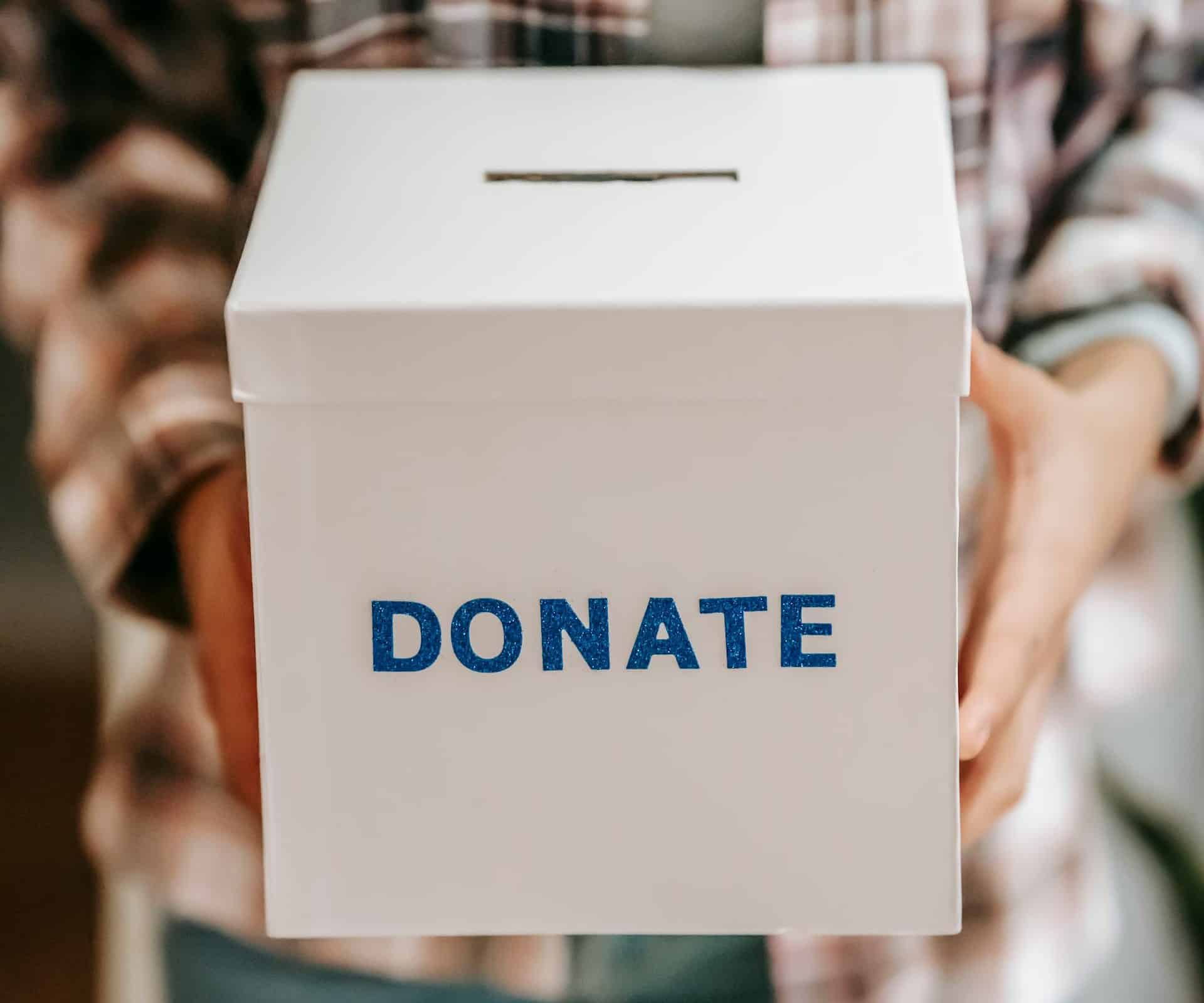About $15 Monthly Donations For Prisoners
When someone walks out of prison, they don’t walk into a fresh start. They walk into a wall of requirements, questions, and missing pieces.
No state ID. No social security card. No birth certificate. No driver’s license.
For 15 years, HOPE For Prisoners has witnessed this moment thousands of times. That first day of freedom, when the enormity of rebuilding a life becomes clear.
It’s why they launched their $15 for 15 campaign—asking supporters to contribute just $15 monthly in honor of their 15-year anniversary serving formerly incarcerated individuals.
The Documents That Define Us
Picture trying to navigate your daily life without identification. You can’t open a bank account. You can’t apply for jobs. You can’t rent an apartment or access social services.
You can’t even buy certain medications or enter many buildings.
These pieces of paper that sit forgotten in our wallets represent something profound for people reentering society. They’re proof of existence. Tickets to participation. Lifelines to a future.
HOPE For Prisoners understands that every success story begins with these seemingly small necessities.
Before someone can pursue employment, education, or family reunification, they need documents that establish their identity and legal status.
Why $15 Makes All the Difference
The monthly contribution directly addresses this critical need. While it might seem
modest—roughly the cost of a few cups of coffee or a streaming subscription—it funds the foundation for transformation.
Here’s what $15 covers:
• State ID replacement – Without it, no job application gets read
• Birth certificate fees -Required to get that ID in the first place
• Social Security card processing – Essential for any official paperwork
• Driver’s license restoration – Critical for jobs, especially in cities where public transportation is limited
• Gas cards for job interviews – Getting there is half the battle
• Work boots or uniforms – First-day essentials many can’t afford
For someone just released, these aren’t just documents and supplies. They’re proof they exist in the eyes of the system.
It’s Not About Second Chances—It’s About First Real Shots
Here’s what most people miss about reentry: it’s not about giving people a “second chance.” It’s about giving them a first real shot.
Many people inside the system never had one. They grew up in chaos, got bounced around, and landed in cycles they didn’t choose.
HOPE For Prisoners doesn’t excuse the past. It gives people the structure and support to own their future.
Their comprehensive approach includes:
Mentorship Programs: Structured support that pairs returning citizens with guides who understand the system inside-out.
Job Readiness Training: How to interview, write resumes, show up and keep employment long-term.
Family Reunification Support: Helping parents reconnect with children and partners after years apart.
Healing and Accountability: Trauma doesn’t end when the sentence does. The program acknowledges this reality and builds in support.
Every part of this process costs money. Every part starts with something small.
Why Monthly Support Creates Lasting Change
One-time donations help. But monthly support builds something bigger: predictability.
And predictability allows HOPE For Prisoners to commit to helping the next person who walks through the door.
Monthly giving differs fundamentally from one-time donations in its psychological and practical impact.
For the organization, predictable monthly support allows for better program planning and consistent service delivery. They can commit to mentorship relationships and job training programs without worrying about funding gaps.
For supporters, the monthly commitment creates ongoing connection to the mission. Rather than feeling good about a single donation and moving on, monthly contributors become invested in long-term outcomes.
The $15 amount strikes a careful balance. It’s accessible without causing financial strain, yet meaningful enough in aggregate to fund substantial programs.
When hundreds or thousands of people commit monthly, $15 becomes:
• Bus passes to probation check-ins
• Printer paper for resume preparation
• Phone minutes for job search calls
• Interview clothing from thrift stores
• First-week groceries while waiting for paychecks
It adds up fast when donors stick with it.
15 Years, Thousands of Stories
HOPE For Prisoners has walked alongside thousands of people over 15 years.
Each success story started with something small:
• A father reuniting with his kids because he could finally show legal custody.
• A young woman landing her first job after years inside—because she got the ID she needed.
• Men and women who went from shelters to paychecks because someone believed they were more than their record.
The impact extends beyond individual success stories. Each person who successfully reenters society represents reduced recidivism, decreased burden on social services, increased tax revenue, and strengthened families.
The ripple effects touch children who maintain relationships with formerly incarcerated parents, employers who discover dedicated workers, and communities that become safer.
Behind every headline about recidivism is a person who needed one small win to shift the outcome. This campaign funds those first wins.
Addressing Systemic Barriers Through Individual Support
The $15 for 15 campaign recognizes a fundamental truth about social change: systemic problems require both policy-level advocacy and individual-level intervention.
While working toward broader criminal justice reform, HOPE For Prisoners focuses on immediate needs that can’t wait for legislative changes.
Document replacement services address bureaucratic barriers that exist regardless of political climate. Job training responds to real employer needs while building participant confidence.
Family reunification support acknowledges that successful reentry depends on stable relationships and support systems.
This dual approach—addressing immediate practical needs while working toward systemic change—maximizes impact for both individuals and communities.
The Investment in Future Generations
Monthly supporters of HOPE For Prisoners aren’t just funding current programs; they’re investing in preventing future incarceration.
Children who maintain relationships with successfully reintegrated parents show better outcomes across multiple measures. Families with stable income and housing create environments that reduce risk factors associated with criminal justice involvement.
The mentorship relationships often span years, creating networks of support that extend far beyond formal program participation. Job training participants frequently help other formerly incarcerated individuals navigate employment challenges.
The $15 monthly investment multiplies through these organic support networks.
What to Do Next
Become a monthly supporter: Commit to $15/month donations to HOPE For Prisoners
Share the campaign: Tell friends, coworkers, or community groups about the $15 for 15 initiative
Talk about reentry differently: Frame it as a community issue that affects everyone, not just charity
Ask your employer: Find out if your company matches donations or supports second-chance hiring
Commit to understanding: Learn what actually makes reentry work beyond stereotypes and assumptions
This campaign isn’t about charity. It’s about equity, structure, and outcomes. It’s about removing invisible walls that keep people from rebuilding their lives.
And it starts with $15.
Key Takeaways
• $15 monthly donations fund foundational documents needed to reenter society – Without basic identification, formerly incarcerated individuals cannot access employment, housing, or services
• Monthly giving provides stability for both organizations and participants – Predictable support allows for consistent program delivery and long-term relationship-building
• Comprehensive support addresses interconnected challenges – Successful reentry requires simultaneous attention to employment, family, education, and healing needs
• It’s about first real shots, not second chances – Many people in the system never had proper opportunities before incarceration
• Small contributions create significant collective impact – When hundreds commit to $15 monthly, it funds mentorship, job training, and essential supplies that transform lives
• Investment in reentry benefits entire communities – Reduced recidivism, stronger families, and increased employment create positive ripple effects beyond individual participants
• Every person has a name, face, and story – They deserve real chances to rebuild, not just bureaucratic obstacles
FAQ Section
Why do formerly incarcerated people need help getting basic documents?
Many people lose important identification documents during incarceration or had limited access to them beforehand.
Without state IDs, social security cards, birth certificates, or driver’s licenses, they cannot apply for jobs, open bank accounts, or access essential services.
How does $15 per month make a meaningful difference?
While $15 seems small individually, collective monthly donations fund comprehensive services including document replacement, job readiness training, mentorship programs, and family reunification support that are essential for successful reentry.
What makes monthly giving more effective than one-time donations?
Monthly contributions provide predictable income that allows HOPE For Prisoners to maintain consistent programs, build long-term mentorship relationships, and plan sustainable support services rather than responding to funding gaps.
How long do people typically need reentry support services?
Reentry is an ongoing process that can take months or years. People may need document assistance immediately, job training within the first few months, and mentorship support for a year or more as they rebuild their lives.
Do HOPE For Prisoners’ programs actually reduce recidivism?
While specific statistics weren’t provided, comprehensive reentry programs that address employment, housing, family relationships, and basic needs have been shown to significantly reduce repeat offenses and improve long-term outcomes.
Can someone donate more than $15 per month?
The $15 for 15 campaign encourages this specific amount in honor of HOPE For Prisoners’ 15-year anniversary, but supporters can typically choose donation amounts that fit their budget and desired impact level.
What other services does HOPE For Prisoners provide beyond document assistance?
The organization offers job readiness training, mentorship programs, family reunification support, educational opportunities, and healing services that address trauma and underlying issues affecting successful reentry.
How can I get involved beyond making monthly donations?
While the transcript focuses on financial support, many reentry organizations also need volunteers for mentorship, job training assistance, transportation help, and advocacy efforts in their communities.






